At Online Chemist, we offer a range of effective treatments to help manage and relieve the symptoms of contact dermatitis. Our products include soothing emollients and topical corticosteroids tailored to reduce redness, itching, and inflammation. With a simple online ordering process, you can access the care you need from the comfort of your home. Shop now for fast, reliable service and expert-recommended solutions to restore your skin’s health.
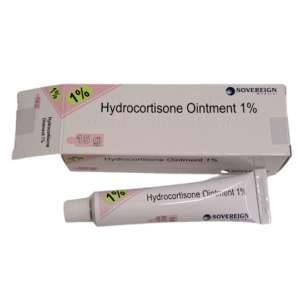
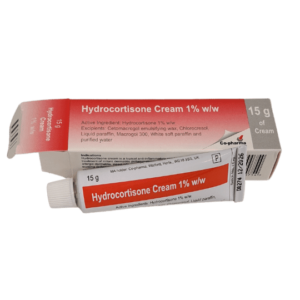
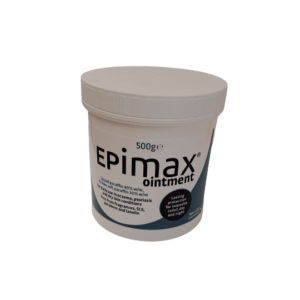
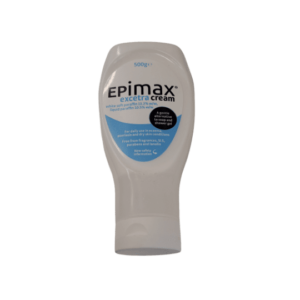

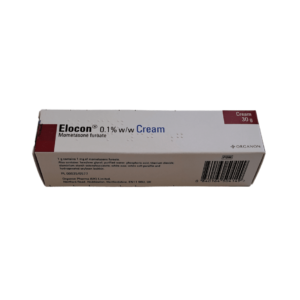
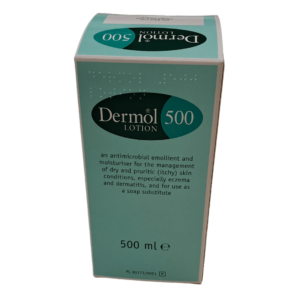
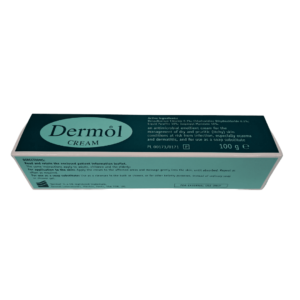

Contact dermatitis is a type of eczema that occurs when your skin comes into contact with a substance that irritates it or triggers an allergic reaction. It causes red, itchy, and inflamed skin and is a common condition in the UK.
Contact dermatitis is a skin condition caused by exposure to irritants or allergens. It is not contagious but can cause discomfort. There are two main types: irritant contact dermatitis, which is caused by direct damage to the skin from substances like soaps or chemicals, and allergic contact dermatitis, which occurs when the immune system reacts to an allergen such as nickel or certain plants. It is common in workplaces involving frequent contact with water, chemicals, or allergens.
The symptoms of contact dermatitis include:
Symptoms usually appear within hours or days after exposure to an irritant or allergen and can affect any area of the skin but are most common on the hands, face, or areas in contact with the substance.
Irritant contact dermatitis occurs when the skin is damaged by repeated exposure to irritants, such as:
It is the most common type of contact dermatitis and typically affects areas exposed to irritants, like the hands. Symptoms can include redness, dryness, cracking, and soreness of the skin, which may worsen with continued exposure.
2. Allergic contact dermatitis:
Allergic contact dermatitis occurs when the immune system reacts to a specific substance (allergen) that comes into contact with the skin. Common allergens include:
Symptoms, such as redness, itching, swelling, and sometimes blistering, may develop hours or even days after exposure. The reaction can spread beyond the area of contact.
Protect and Hydrate Your Skin
– Order Now for Quick Relief!
If symptoms are severe, persist despite treatment, or involve a large area, seek medical advice.
Emollients are moisturisers that help to hydrate and protect the skin by forming a barrier to prevent water loss. They are essential for managing contact dermatitis as they:
Emollients are available as creams, ointments, or lotions. Ointments are best for very dry skin, while creams and lotions may suit milder cases. Apply regularly, especially after washing, and avoid products with fragrances or additives that could irritate the skin further.
Restore Your Skin’s Comfort
– Explore Our Range of Emollients Today!
Topical corticosteroids are anti-inflammatory creams or ointments used to reduce redness, itching, and swelling caused by contact dermatitis. They are prescribed in different strengths, depending on the severity of the condition.
Apply a thin layer to the affected area as directed by a healthcare professional. Overuse or long-term use can cause side effects, such as skin thinning, so follow your doctor’s advice carefully.
Powerful Treatment for Contact Dermatitis
– Buy Steroids Online!
You should see a doctor if:
A doctor can provide a diagnosis, recommend appropriate treatments, and may refer you for allergy testing if needed.
By taking these precautions, you can reduce the likelihood of developing contact dermatitis.

Online Chemist
82 Middleton Road
Gorleston
Great Yarmouth
Norfolk, NR31 7AH
Phone: 01493 600610
Email: info@onlinechemistuk.net
Superintendent Pharmacist:
Obaidullah Zaman
BPharm, MPharm, PGDip (Pharmacy), MRPharmS, IP
GPhC Reg. Number: 2083409
Pharmacy Premises GPhC Reg. Number: 9011159
Monday 09:00 – 17:00
Tuesday 09:00 – 17:00
Wednesday 09:00 – 17:00
Thursday 09:00 – 17:00
Friday 09:00 – 17:00
Saturday Closed
Sunday Closed
Click here for driving directions
OnlineChemist is a trading name of Nomaz Limited.
Registered in England – 11349276.
© 2025 All rights reserved.
Store Notice: Orders placed after 11:00 AM on Thursday, 17th April 2025 will be processed on the next working day, Tuesday, 22nd April 2025, due to the bank holiday weekend. Thank you for your understanding. Dismiss